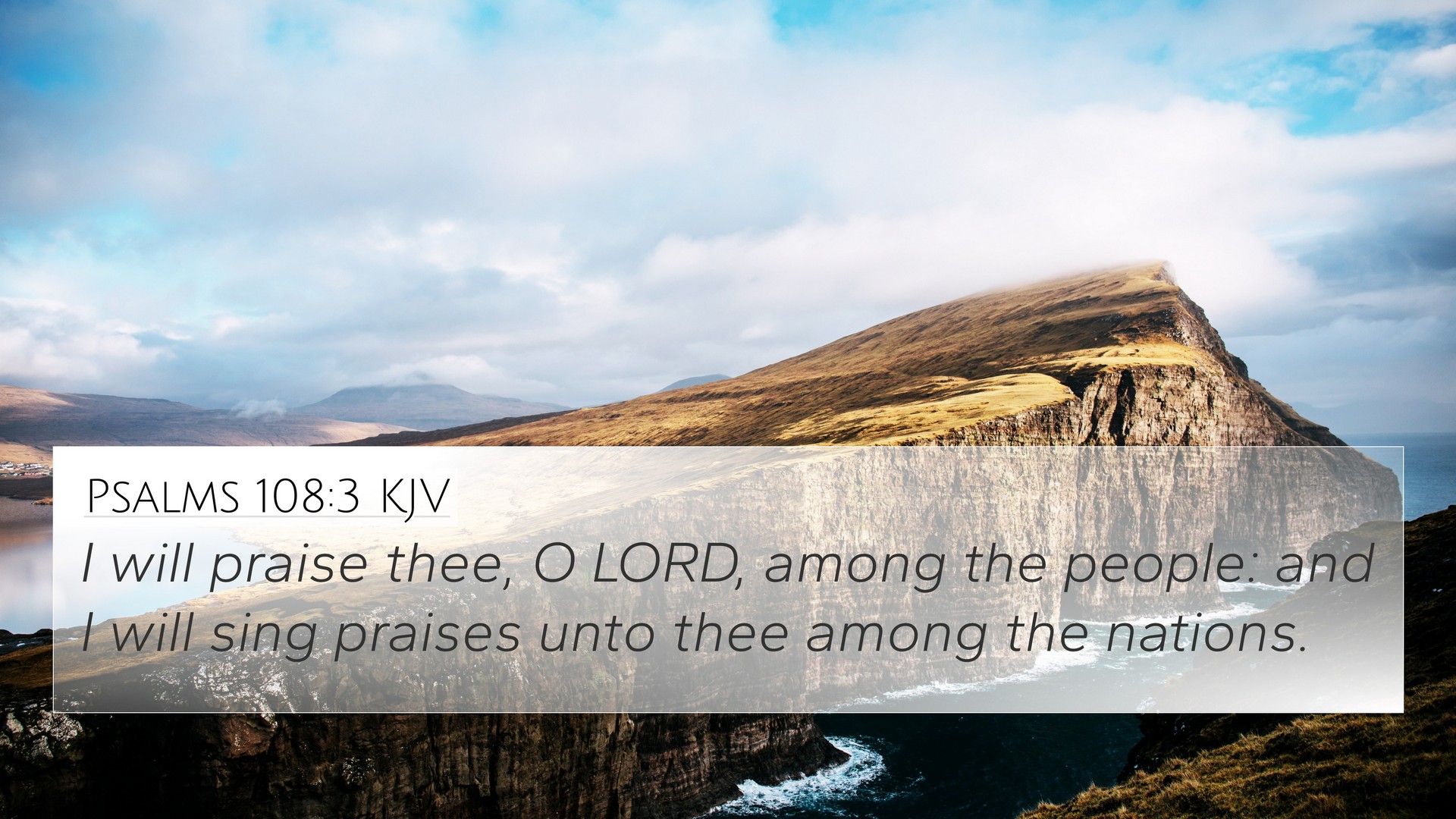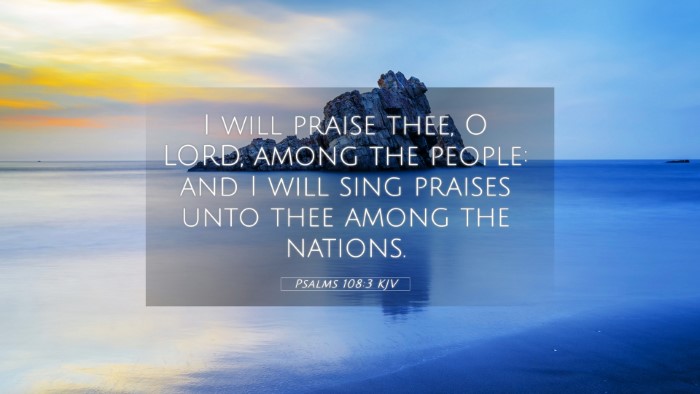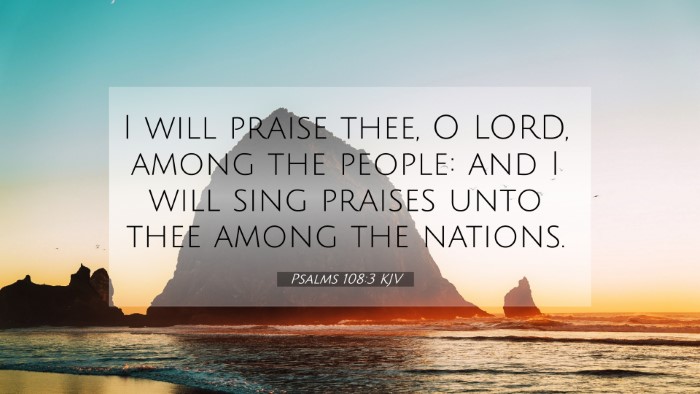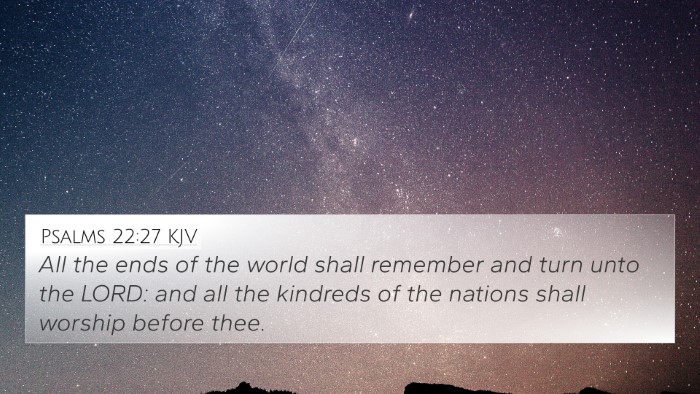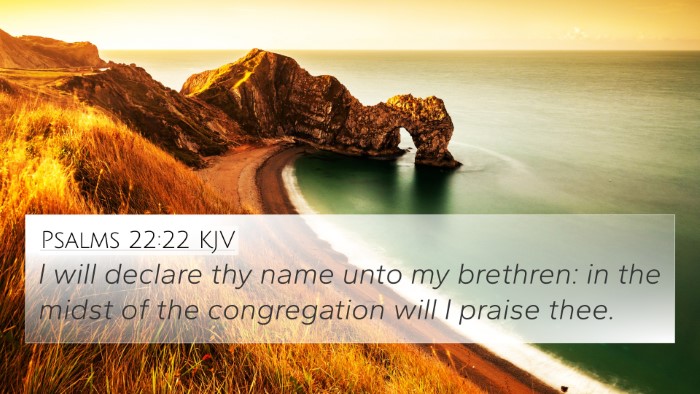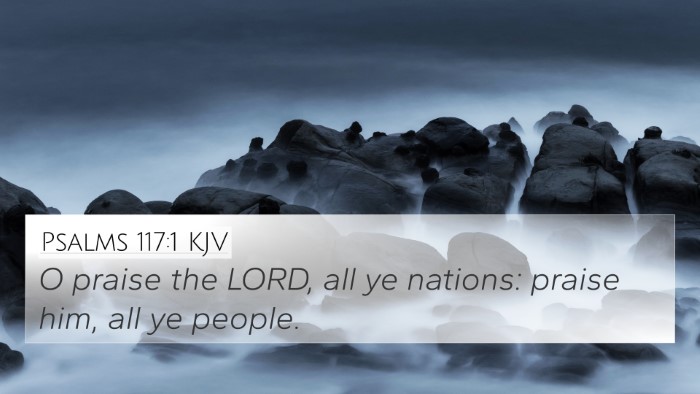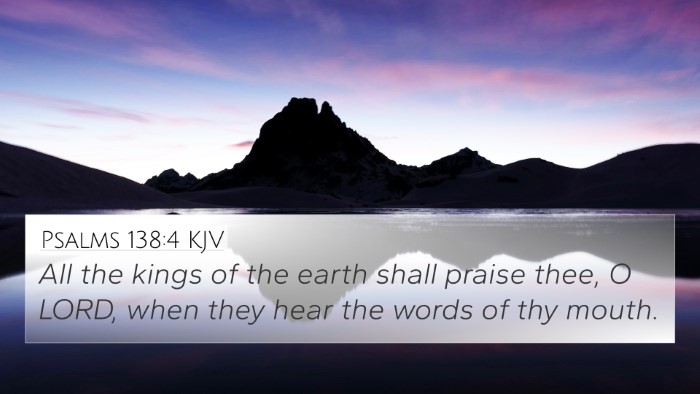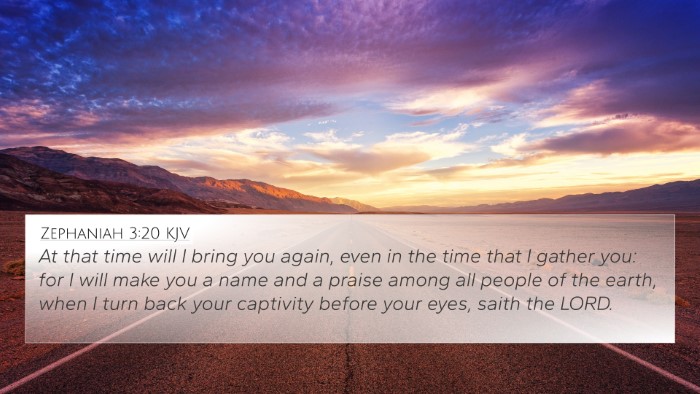Psalms 108:3 - Summary and Interpretation
Psalms 108:3 states, "I will praise thee, O Lord, among the people: and I will sing praises unto thee among the nations." This verse expresses the psalmist's commitment to glorifying God not only in his personal life but also publicly among different peoples and nations.
Meaning of Psalms 108:3
The verse serves as a profound declaration of the psalmist's intent to praise God openly and universally. According to various public domain commentaries, we can extract deeper insights into its significance.
Insights from Commentaries
-
Matthew Henry:
Henry emphasizes the importance of public praise and the duty of believers to acknowledge God's sovereignty before others. It illustrates the joy and dedication that the psalmist feels in turning to the Lord among diverse crowds, reinforcing the idea that worship should be inclusive of all peoples.
-
Albert Barnes:
Barnes notes that this verse stresses a proactive approach to worship. The psalmist expresses a willingness to praise God publicly, which serves as a model for believers to do the same. It highlights God’s universal majesty and the call to celebrate this aspect of His character collectively.
-
Adam Clarke:
Clarke elaborates on the psalmist’s intention of being a witness among the nations, asserting that the exaltation of God should transcend cultural boundaries. This verse underlines the role of worship in bridging gaps between various people groups and promotes the spread of God's glory across nations.
Key Themes and Connections
Thematically, Psalms 108:3 emphasizes:
- Public Worship: The call to praise God among the peoples underscores the community aspect of faith.
- Inclusivity in Worship: It highlights that worshippers are encouraged to engage in praise regardless of ethnic or national divisions.
- God’s Sovereignty: The focus is on God's authority and glory, which draws all nations to worship Him.
Cross-References for Psalms 108:3
To fully appreciate Psalms 108:3, it is beneficial to explore several cross-referenced verses:
- Psalm 57:9: "I will praise thee, O Lord, among the people: I will sing unto thee among the nations." This verse mirrors the sentiments of public praise found in Psalms 108:3.
- Psalm 117:1: "O praise the Lord, all ye nations: praise him, all ye people." This reinforces the call for all peoples to come together in worship.
- Matthew 28:19: "Go ye therefore, and teach all nations." This Great Commission reflects the imperative to spread worship and the teachings of God beyond borders.
- Acts 2:21: "And it shall come to pass, that whosoever shall call on the name of the Lord shall be saved." This illustrates the universality of God's offering of salvation.
- Romans 15:11: "And again, Praise the Lord, all ye Gentiles; and laud him, all ye people." This reiterates the theme of the nations gathering to honor God.
- Revelation 7:9: "After this I beheld, and, lo, a great multitude, which no man could number, of all nations, and kindreds, and people, and tongues, stood before the throne." This prophetic vision emphasizes God's diverse kingdom where all will praise Him.
- Isaiah 42:10: "Sing unto the Lord a new song, and his praise from the end of the earth." This encourages worship that transcends geographical limitations, matching the intention of Psalms 108:3.
Exploring Connections Between Bible Verses
In addition to the aforementioned references, it is essential to consider how Psalms 108:3 connects with broader biblical themes:
- Thematic Bible Verse Connections: The act of worship is a recurring theme in the Bible, and Psalms 108:3 serves as a unifying thread that connects various teachings about praising God.
- Inter-Biblical Dialogue: The call for all nations to come together in praise is seen in both the Old and New Testaments, suggesting a continuous dialogue about God's glory across scripture.
Conclusion
Psalms 108:3 is not just a verse about personal devotion; it conveys a powerful call for collective worship that echoes throughout the scriptures. By examining it through the lens of various public domain commentaries and cross-referencing it with related Bible verses, we uncover a rich tapestry of themes related to worship, inclusivity, and God's sovereignty. Understanding these connections aids in deepening our appreciation of how different passages relate and inform one another, enhancing both our individual and communal worship experience.
